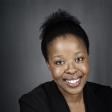Andile Ngcaba touts broader support for start-ups, SMMEs
The Digital Council Africa is working with a number of companies in the industry to make sure start-ups and SMMEs are really supported, said council president Andile Ngcaba.
Furthermore, the fibre industry must begin to look at venture funds to be able to stimulate growth, particularly post-COVID growth, Ngcaba added.
“The only way this industry will grow is by us driving start-ups and SMMEs, us creating venture capital funds to be able to make sure we can grow not only big companies, but those who are starting up and entering the industry.”
Ngcaba made the comments during his opening keynote at the virtual FibreCONEXT2020 conference.
Held under the theme “Navigating changing environments”, the digital council’s event is taking place this week, featuring headline speakers in government as well as captains of industry.
According to Ngcaba, an initiative for SMMEs and start-ups has been high on the Digital Council Africa’s agenda. “We are starting a programme to work with a number of companies. We want to reduce the paying of our SMMEs and start-ups to less than 30 days.
“Juanita [Clark, Digital Council Africa founder and CEO] and her colleagues have established a group to work on this and to ensure we can be able to drive this programme. The board of the council will definitely deliberate in the next few months and announce some of the programmes that we believe will drive this sector that is a central part to the growth of the industry.”
Submarine explosion
Ngcaba noted the African continent has witnessed an explosion of submarine cables, adding Africa has been deploying submarine cables, in both the Eastern and Western parts, over many years.
He pointed to the latest announcements of new cable systems by Google and a Facebook-led consortium, saying the new players that are building submarine cables on the continent are welcomed.
Search giant Google is set to launch its Equiano cable, which will connect Africa with Europe.
Meanwhile, a consortium of organisations, which includes China Mobile International, Facebook, MTN GlobalConnect, Orange, stc, Telecom Egypt, Vodafone and WIOCC, announced plans to build 2Africa, a subsea cable to serve the African continent and Middle East region.
Social media giant Facebook is also set to encircle Africa with its own cable system, dubbed Simba.
“These cables will no doubt improve connectivity and lower prices on the African continent, and as the Digital Council Africa, we encourage further the deployment of these submarine cables on top of the cables that already exist.
“With Africa having submarine cables, data centres and longhaul fibre connecting these data centres, and the emergence of edge and edge cloud, we really are excited that as the continent we are moving forward in creating this digital future that all of us expect.”
‘Fiberise’ 5G towers
On fifth-generation (5G) technology, Ngcaba said there is a need to ‘fiberise’ 5G towers that are going to be built everywhere.
“There are about four towers for every one tower of 4G network. We need, from an environmental point of view, to work together in ensuring that as we build these towers, we are able to share them as much as possible.
“Fibre is extremely important for 5G backhaul, whether that is sub-6GHz or new radio 5G. The small and macro cells will require fibre to connect all these 5G towers. The number of macro and small cells required will increase significantly on the continent.
“Legacy copper-based infrastructure will not be able to keep up with 5G bandwidth demands.
“The future successes of 5G will depend heavily on us deploying optic fibre in the cities of the African continent.”
Africa is well endowed with agricultural arable land and mining, and therefore needs to start the deployment of various platforms that connect the Internet of things (IOT), according to Ngcaba.
“We need to work together to make sure we are part of the global movement of IOT, so that we can connect as many devices in the agricultural sector, mining sector, waste management, manufacturing and in smart cities.
“This IOT growth is something Africa needs to embrace; we need to think about connectivity, not only to connect humans, but to connect things and machines.”
* ITWeb is the media partner of Digital Council Africa’s FibreCONEXT2020 conference.
